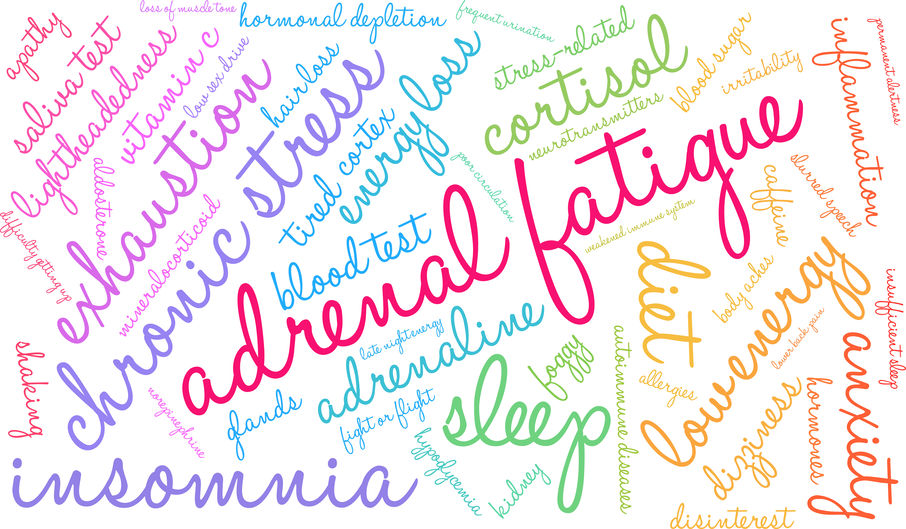 Your adrenal glands are small and out of sight, but they are incredibly important. They create hormones your body needs to function and thrive. You can’t live without these small but vital glands, so it’s crucial to ensure your adrenal health is good. When the adrenals work more or less than they are supposed to, it can lead to problems.
Your adrenal glands are small and out of sight, but they are incredibly important. They create hormones your body needs to function and thrive. You can’t live without these small but vital glands, so it’s crucial to ensure your adrenal health is good. When the adrenals work more or less than they are supposed to, it can lead to problems.
Here’s what you need to know about the adrenal glands, how they work, and ways you can support them.
What Are Your Adrenal Glands?
Your adrenal glands are two small, rectangular organs located on top of each of your kidneys. Each adrenal gland has two parts: the cortex, the outer region, and the medulla, which is in the center. Each part makes and releases different hormones into your bloodstream for your body to use daily, including:
- Cortisol
- Aldosterone
- Adrenaline
- Norepinephrine
- And more
These hormones are necessary to regulate various physiological activities in your body. They help you react to stress, fight inflammation, regulate blood pressure, control metabolism, support your immune system, and so much more.
Excess stress can take a toll on your adrenal glands over time, which can make it harder to handle stress and other daily pressures.
Adrenal Fatigue and Adrenal Insufficiency
Sometimes, adrenal glands can produce too many or too little hormones:
- If the adrenals are not making enough hormones, it’s known as adrenal insufficiency, also known as Addison’s disease. This is rare.
- On the other hand, Cushing syndrome is more common and can occur when the adrenal glands are producing too much cortisol for a long period of time.
Dysfunction of the adrenal glands can create hormonal imbalances that lead to issues like extreme fatigue, low or high blood pressure, nausea, abdominal pain, salt cravings, anxiety, insomnia, and weight loss or weight gain.
Adrenal fatigue is also a popular theory surrounding adrenal health. Naturopathic and alternative medicine experts describe adrenal fatigue as the adrenal glands functioning below their necessary level. This may be caused by long periods of intense stress or illness.
Adrenal fatigue symptom descriptions have included feeling tired all the time, salt and sugar cravings, digestive issues, and more.
How to Care for Your Adrenal Health Through Lifestyle
The most common natural approach to supporting your adrenal health is a well-balanced diet and ingesting the right vitamins and minerals.
Foods to Eat
The adrenal fatigue diet focuses on eating whole foods like:
- Colorful vegetables
- Low-sugar fruits
- Nuts and seeds
- Lean meats, fish, and eggs
- Whole grains
- Beans and legumes
- And healthy fats
You should also stay hydrated throughout the day, look for ways to reduce stress, and move your body more through daily exercise.
Foods to Avoid
What you don’t eat for adrenal health matters, too. Limit or avoid the following as often as you can:
- Unhealthy fats
- Refined sugars and artificial sweeteners
- Processed, packaged foods
- Excess alcohol and caffeine
- Sodas
- Fast foods
Eating regularly and focusing on whole foods will help keep your blood sugar stable, providing you with proper energy throughout each day.
Nutrients for Adrenal Health
The following nutrients are also important for supporting your adrenal glands:
- Folic acid: a B-vitamin necessary for DNA and RNA production and cell turnover.
- Pantothenic acid: crucial for the generation of glucose and synthesis of fatty acids, steroid hormones and more.
- Vitamin B-12: water-soluble vitamin needed for creating DNA and RNA, proper folic acid function, and keeping your blood and nerve cells health.
- Vitamin C: necessary for creating two hormones, norepinephrine and epinephrine, released by the adrenals.
The supplements ashwagandha and Rhodiola are also commonly used to nourish adrenal health.
The Bottom Line
Modern life is stressful, and your adrenal glands support you during times of stress. Ironically, too much stress and strain on your body can make it harder for your adrenals to do their job. Thankfully, you can support them daily by remembering to put you and your health first.

Michael Schwartz, NMD
President and Founder
Michael’s® Naturopathic Programs
